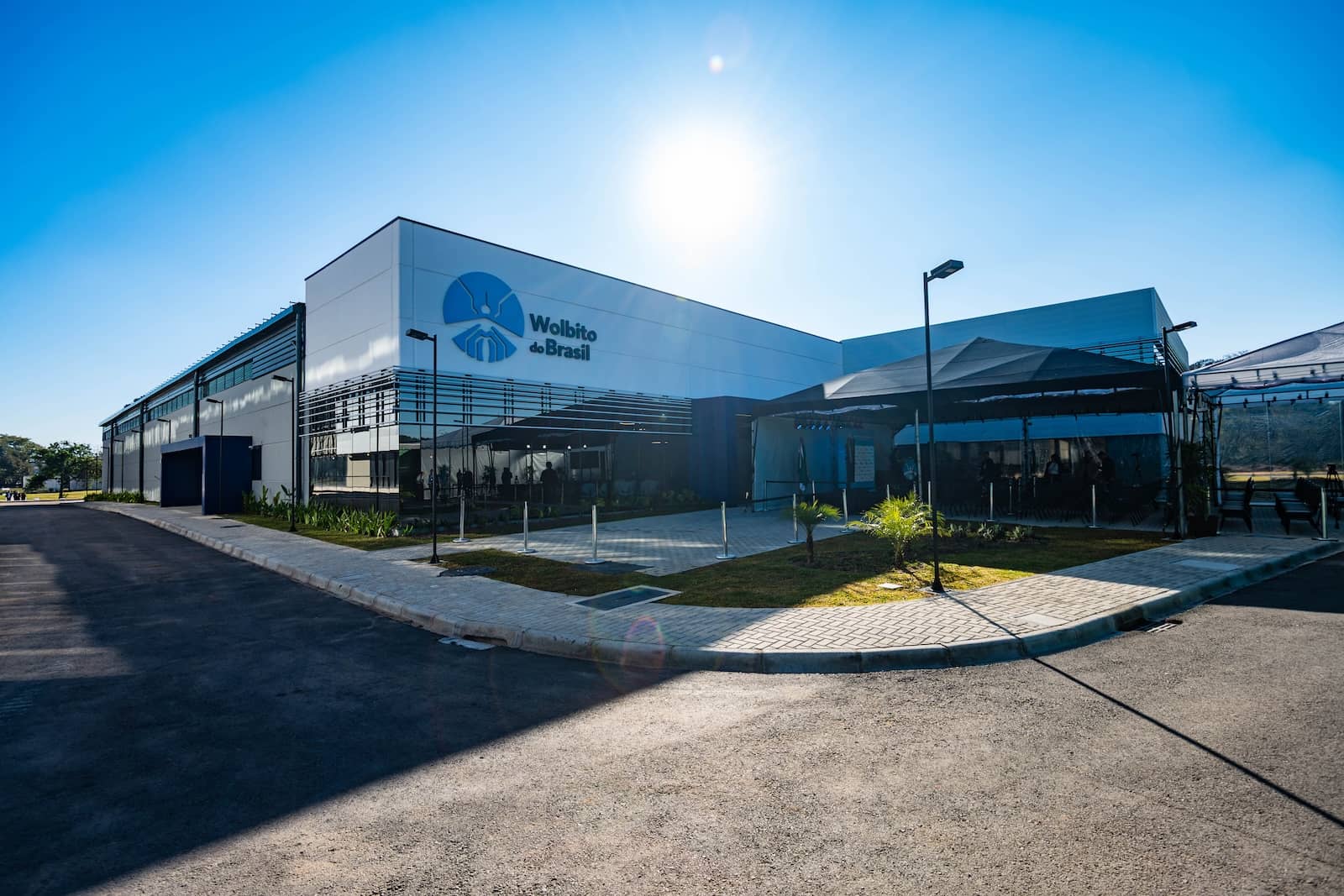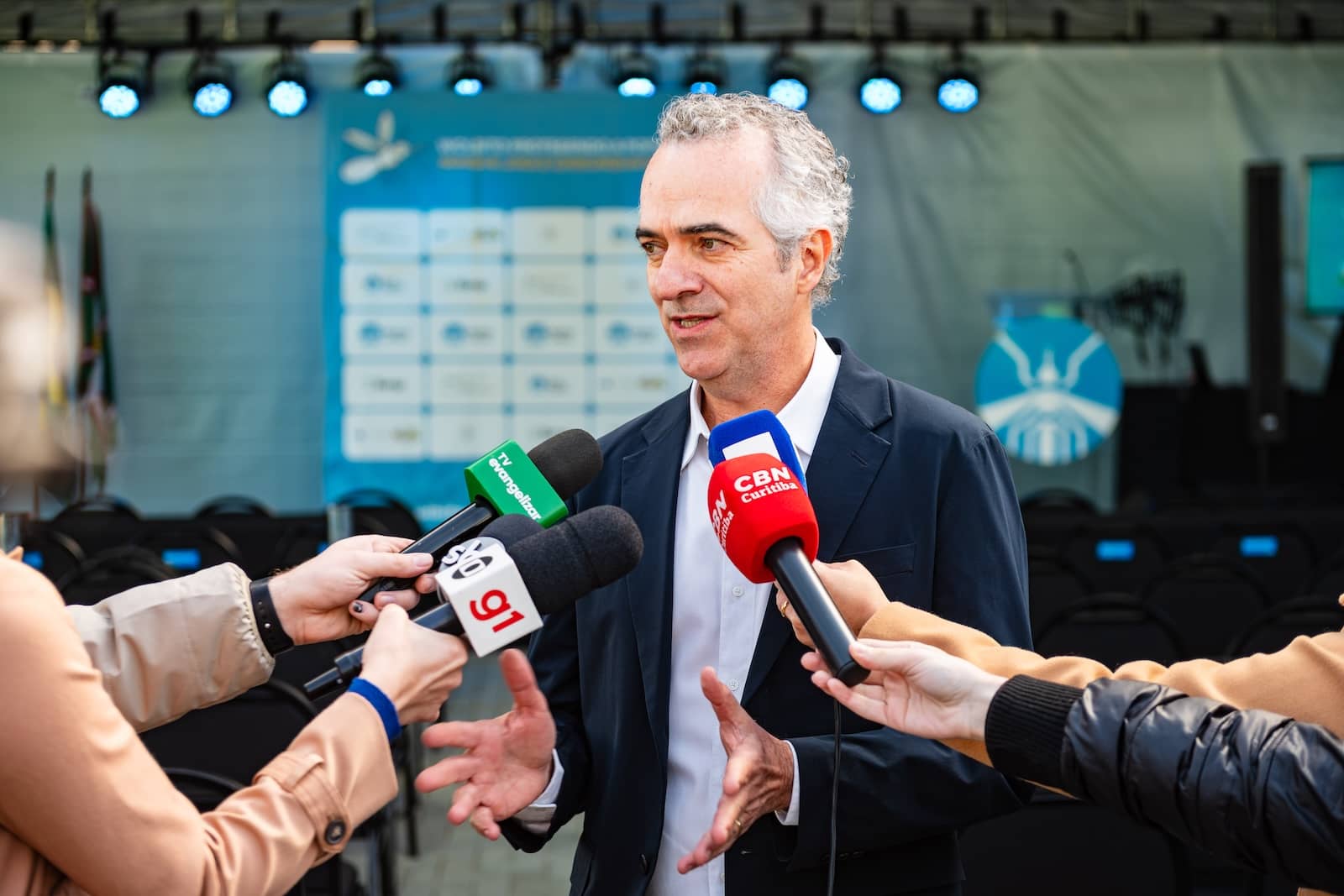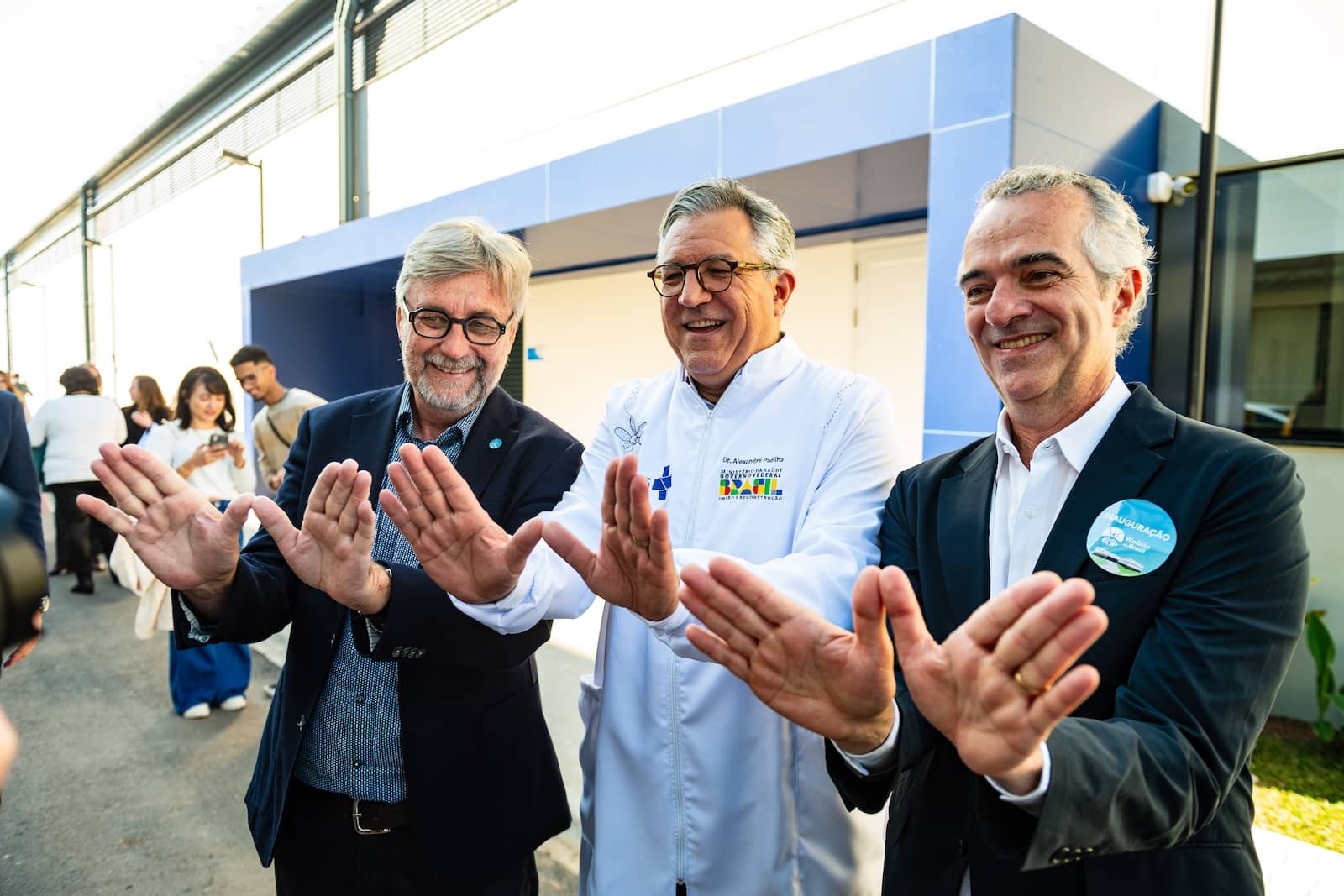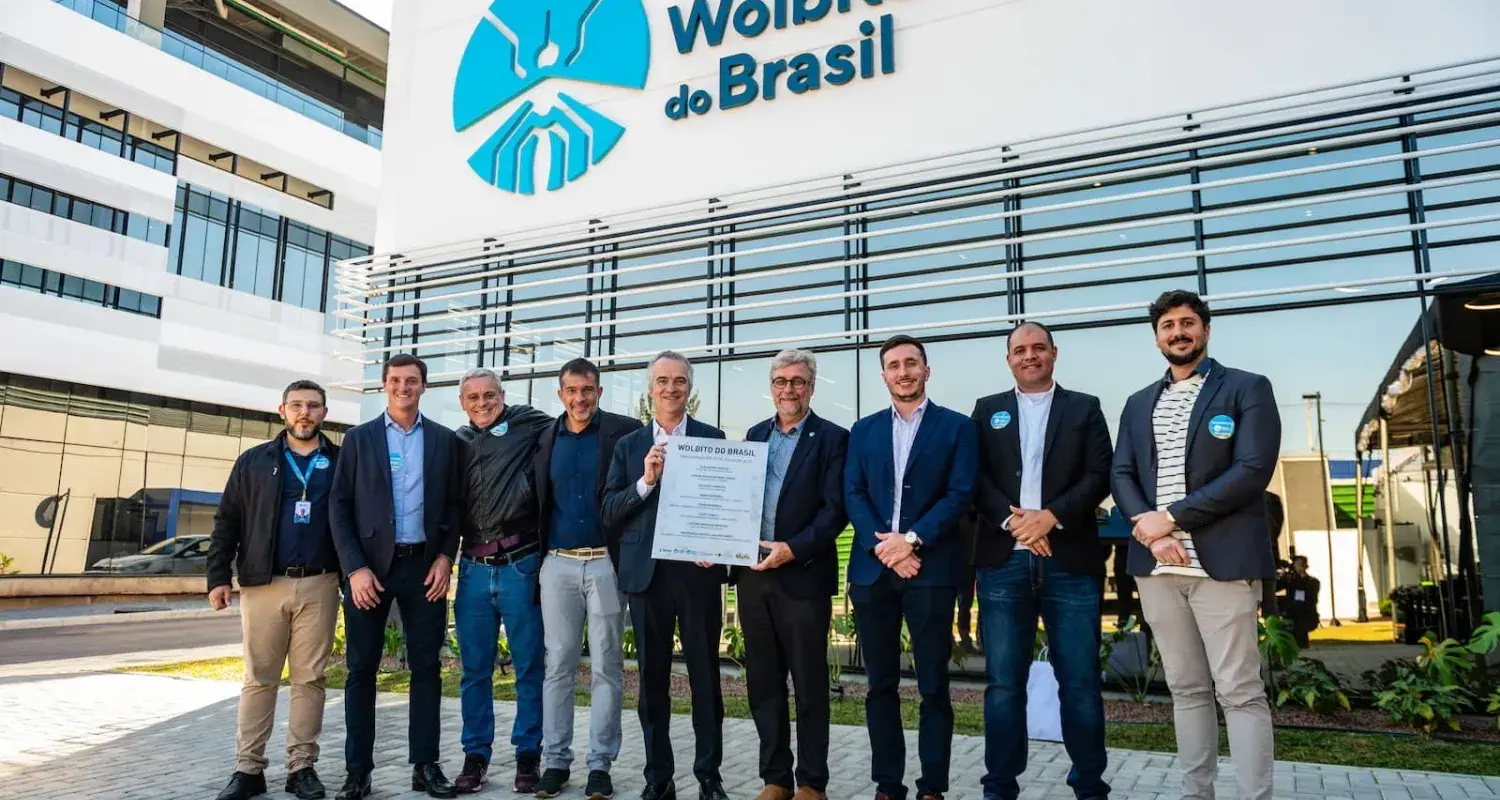The fight against dengue and other mosquito-borne diseases reaches a new milestone in Brazil.
Wolbito do Brasil, the world's largest biofactory breeding Aedes aegypti mosquitoes with Wolbachia, officially launched this week to combat mosquito-borne diseases.
It will dramatically expand access across Brazil to Wolbachia mosquitoes, a nature-based disease control method that has significantly reduced the incidence of dengue, Zika, and Chikungunya, in Rio de Janeiro and Niterói since the method was first deployed in those cities in 2014.
The major biofactory, based in Curitiba, is the result of a joint venture between the World Mosquito Program (WMP), Fiocruz, and the Institute of Molecular Biology of Paraná (IBMP).
The formal partnership builds on years of collaboration between WMP and Fiocruz, which has helped protect more than five million Brazilians across eight cities using WMP's innovative Wolbachia technology over the past decade. This number is expected to reach more than 140 million people across 40 municipalities in the coming years, as the Ministry of Health incorporates Wolbachia as one of its national strategies for combatting mosquito-borne diseases.
"The biofactory will have the capacity to produce 100 million mosquito eggs per week," says Luciano Moreira, CEO of Wolbito do Brasil, who is responsible for bringing the method to Brazil. The facility will initially be capable of producing about five billion mosquito eggs annually.
"Our goal is to significantly reduce the number of arbovirus cases in the country. In ten years, we will have protected more than half of the Brazilian population."

Expanding access to Wolbachia mosquitoes across Brazil
With more than 3,500 m² of built area, cutting-edge automation and mosquito breeding equipment, and a team of approximately 70 employees, Wolbito do Brasil meets the growing national demand for WMP's Wolbachia method. The facility will initially be used exclusively by the Ministry of Health, ensuring the distribution of Wolbachia (also known as Wolbito in Brazil) mosquitoes to several regions of Brazil with high dengue rates.
"Over more than a decade, this method has consolidated robust scientific evidence, proving to be a key ally in combating diseases transmitted by the Aedes aegypti mosquito. Wolbito do Brasil is a collective achievement that reaffirms our commitment to science, health, and the future of the population. We are ready to serve more Brazilian municipalities with our Wolbachia method, protecting the population from arboviruses," adds Moreira.
Wolbito do Brasil was created to consolidate and expand the implementation of WMP's Wolbachia method.
Be Part of the Solution: Join Our Community
Discover how we’re transforming lives and combating mosquito-borne illnesses globally. Sign up for exclusive insights and updates delivered straight to your inbox.
Transforming global public health
Today, Brazil has the greatest number of dengue cases in the world, with one-tenth of the global dengue burden and more than 90% of its population at risk of infection. Last year was the worst on record, with more than 10 million probable cases in 2024 and 6,297 deaths.
Scott O'Neill, WMP's CEO, highlights the method's contribution to transforming the future of global public health.

O'Neill adds that Brazil's leadership in utilising Wolbachia nationally can provide a model for the world's other 129 dengue-affected countries, eventually helping to expand access to the estimated four billion people worldwide who live at risk of dengue and other viruses transmitted by Aedes aegypti mosquitoes.
The technology consists of introducing into mosquitoes a bacterium -- called Wolbachia -- that prevents them from transmitting dengue and other mosquito-borne viruses. Pioneered by scientists at Monash University in Melbourne, Australia, our Wolbachia technology has already been introduced into 15 countries, protecting nearly 14 million people to date.
"The inauguration of the world's largest biofactory dedicated to Wolbachia technology represents an exercise in national sovereignty and innovation," emphasises Brazil's Health Minister Alexandre Padilha.
"This advancement is a direct result of the continuity of public policies and international cooperation with partners such as Australia. The unit installed in Curitiba symbolises the strengthening of science, job creation, local technology production, and, above all, public health safety."

Leading the fight against mosquito-borne disease in Brazil
Brazil's first releases of Wolbachia mosquitoes began in September 2014 in Rio de Janeiro. Large-scale deployments in the country followed three years later. WMP's Wolbachia method now protects more than five million people in eight cities including Niterói, Rio de Janeiro, Londrina, Foz do Iguaçu, Campo Grande, Joinville, Belo Horizonte, and Petrolina. It is also being currently implemented in Presidente Prudente, Uberlândia, and Natal.
"Our method is safe, natural, and self-sustainable. Our key differentiator is the communication and engagement stage, because with a well-informed and engaged population, the results are better. Joining forces produces a more significant effect," adds Moreira.
Other municipalities are preparing to begin work with Wolbito do Brasil, including Balneário Camboriú and Blumenau, as well as new areas in Joinville, Santa Catarina; Valparaíso de Goiás and Luziânia, Goiás; and the capital Brasília. The municipalities are chosen through a careful selection process by the Ministry of Health, and implementation has the strategic support of Fiocruz.

Economic cost savings
WMP's Wolbachia method provides a highly cost-effective approach to disease control. Once it is established in local mosquito populations, Wolbachia is naturally passed down by female mosquitoes to their offspring, which means that Wolbachia is self-sustaining, does not need to be reapplied, and has no ongoing costs.
Within a few years of application, the method pays for itself through savings in medical costs, lost wages and productivity losses caused by absences from work or school. Over time, Wolbachia establishment delivers substantial economic benefits, saving millions of dollars in healthcare costs and improving labour productivity.
Studies show that for every R$1.00 invested, the government saves between R$43.45 and R$549.13 on medications, hospitalisations, and general treatments.
"The pandemic has demonstrated the risks of global dependence on input production, and this biofactory is a strategic response to this challenge. This achievement reaffirms our commitment to science, the strategic industrialisation of health, and the reduction of external dependence. The Wolbachia biofactory is a decisive step on this journey," adds Padilha."


